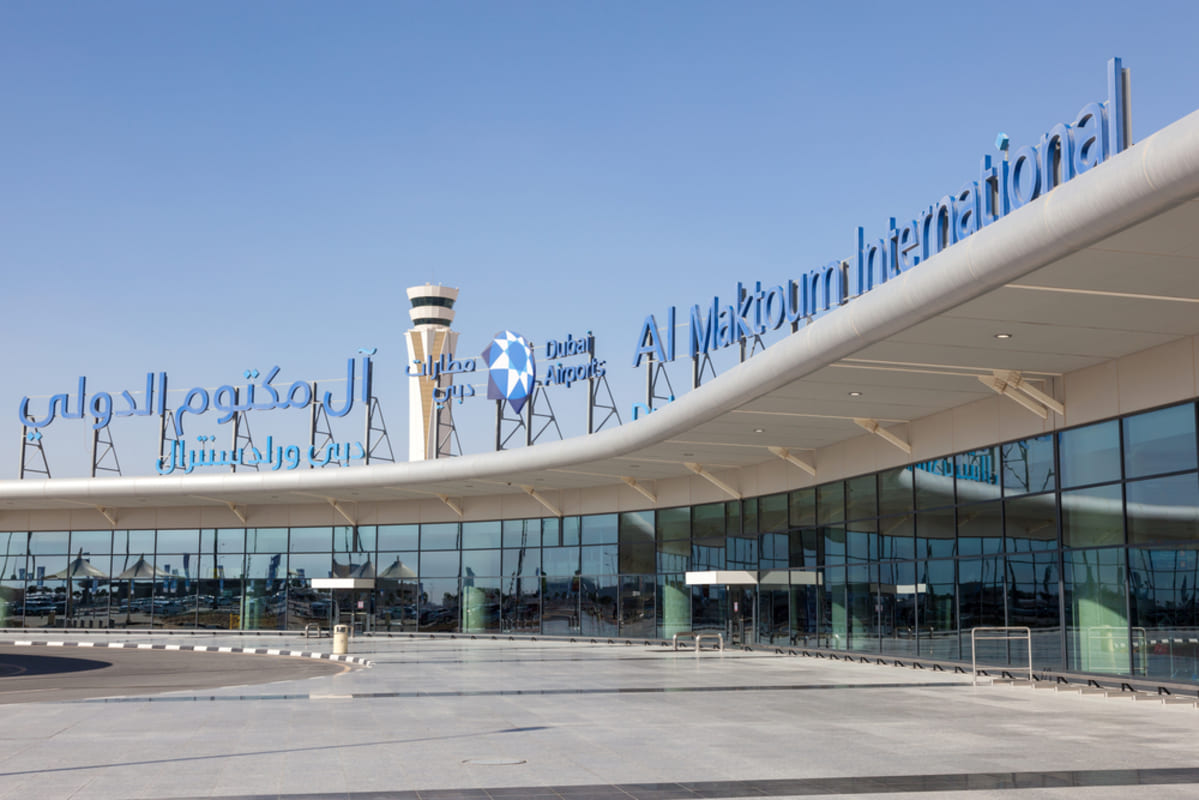Dubai is accelerating the $35 billion expansion of Al Maktoum International Airport (DWC) with new contracts, including a AED1 billion ($272.3 million) deal for a second runway. The expansion in Dubai South is expected to create housing and employment opportunities for one million residents.
A separate contract of AED75 million has been awarded for enabling works in the first phase. Major packages, such as the Automated People Mover and Baggage Handling System, are currently in the tendering phase and are expected to be awarded later this year, according to Khalifa Al Zaffin, executive chairman of Dubai Aviation City Corporation and chairman of Dubai Aviation Engineering Projects.
The terminal substructure, early 132kV substations, and district cooling plants comprise the next set of packages to be tendered later in 2025.
Mr. Al Zaffin stated at a press briefing during the annual Airport Show in Dubai, “The design is being done and we have already started work on the ground.”
He added, “The airport will be a technological marvel from all aspects. We are trying to make it intuitive, smooth, with a lot of passenger delights.”
The initial phase, slated for completion in 2032, will elevate the airport terminal’s annual handling capacity to 150 million passengers.
Mr. Al Zaffin stated, “We remain fully committed to delivering Al Maktoum International Airport on time.”
Upon full completion, the airport is projected to accommodate 260 million passengers and 12 million tons of cargo annually.
Dubai International Airport (DXB) is nearing its maximum operational capacity. Mr. Al Zaffin emphasized that constructing one of the world’s largest airports is essential to handle the anticipated surge in passenger volume.
While the project cost may experience some “variation upwards or downwards,” it is expected to remain largely within the initially announced $35 billion range.
Economic impact
Regarding its economic impact, the project is anticipated to “support up to one million people through employment and housing,” which is integral to the development of Dubai South, Mr. Al Zaffin noted in a statement.
The project will generate “thousands” of employment opportunities in key sectors, including construction, aviation, logistics, real estate, tourism, and cargo. This will stimulate growth in areas surrounding Dubai South, leading to increased demand for hotels and real estate developments.
The airport project will create a “ripple effect” across Dubai’s economic pillars, from airlines and cargo to hospitality, real estate, and logistics, the official added.
The transition from DXB to DWC will occur in a single, coordinated move to avoid operational challenges and minimize disruptions for passengers, Mr. Al Zaffin explained.
He stated, “We are confident in our ability to execute this shift successfully.” Extensive preparations, including an Operational Readiness and Airports Transfer program, will be conducted in advance to ensure a seamless transition and uninterrupted services.
The Dubai Government will determine the future of DXB after all airlines have relocated their operations, in accordance with the emirate’s strategic objectives.
Read more: Dubai Airport (DXB) upgrades security with smart CT scanners to speed up travel
Advanced technology integration
The airport, spanning 70 sq km, will be five times the size of DXB and will feature two passenger terminals and seven concourses, with more than 400 gates to ensure capacity for future growth, the statement said.
Passengers will be transported via automated people movers. The airport will also incorporate an underground train to facilitate travel between smaller concourses, creating “intimacy at scale” with shorter walking distances, according to Paul Griffiths, chief executive of Dubai Airports, last week.
Mr. Al Zaffin stated that AI and advanced technology will play a significant role in creating a “borderless airport,” where passengers will move through quickly without long queues at customs and immigration checkpoints.
He explained, “Once you enter the airport, they know who you are, they know where you’re coming from and where you’re going. They know everything about you and therefore you’re processed.”
The airport will integrate advanced technology such as robotics for baggage handling, security, and maintenance. Utilizing biometric data to identify passengers, along with smart security measures and automated check-in processes, will expedite passengers’ journeys.








